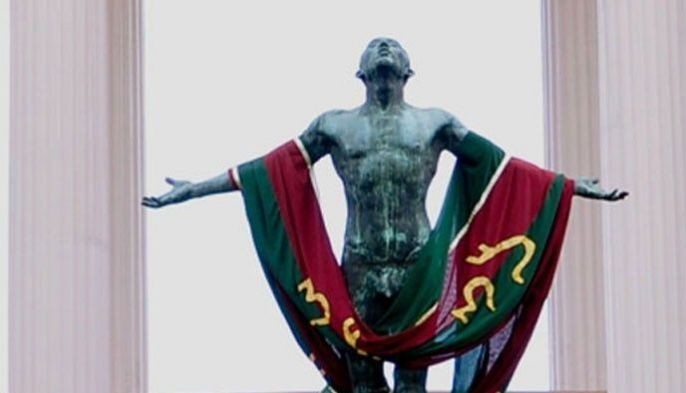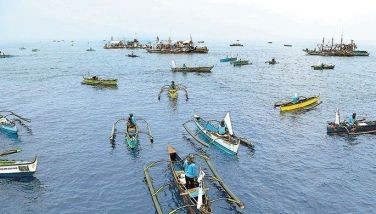RP, Japan trade pact signed
September 10, 2006 | 12:00am
HELSINKI, Finland — After three years of tedious negotiations, President Arroyo and Japanese Prime Minister Junichiro Koizumi signed here yesterday an agreement that aims to establish free trade between their countries.
Mrs. Arroyo and Koizumi signed the Japan-Philippines Economic Partnership Agreement (JPEPA) a day before the start of the two-day 6th Asia-Europe Meeting (ASEM).
They are among 38 heads of states and governments attending the summit to discuss pressing issues including oil, environment, security and trade.
The signing was held at Ambassador II Scandic Continental Hotel at 4 p.m. or two hours after Mrs. Arroyo and the rest of the Philippine delegation arrived at the Helsinki-Vantaa Airport.
Assisting the two leaders were Foreign Affairs Secretary Alberto Romulo and Japanese Foreign Minister Taro Azo. Also present at the signing was Trade Secretary Peter Favila.
The JPEPA is the first bilateral free trade agreement for the Philippines and the fourth for Japan after the forging of similar pacts with Malaysia, Mexico and Singapore. The signing coincided with the 50th anniversary of the normalization of diplomatic relations between the two countries and the Philippine-Japan Friendship Year.
Negotiations for the JPEPA began in 2003 but the talks had stalled but recovered over liberalization of automotive imports and quotas on the entry of Filipino nurses to Japan.
The JPEPA, which takes effect in 2007, seeks to liberalize the flow of goods and services between the two countries.
Reports from the Department of Foreign Affairs said the bilateral agreement will cut import tariffs on industrial goods by 90 percent within a decade and will provide incentives for Japanese direct investments in the automobile and electronic industries in the Philippines.
The Philippines will abolish tariffs on at least 60 percent of its steel imports from Japan under the JPEPA.
Manila is also expected to reduce tariffs on completely built-up automobile units with engine displacements of three liters and below by one percent or to 29 percent this year.
The tariff would be further lowered to 26 percent next year and to 23 percent in 2008, 20 percent in 2009. By 2010, tariffs on Japanese cars would be down to zero.
Japan will lower tariffs on banana and pineapple imports from the Philippines, which in turn will remove tariffs on Japanese grapes and pears.
There are no details released yet on the quota of Filipino medical workers to be allowed entry to Japan.
Mrs. Arroyo and Koizumi signed the Japan-Philippines Economic Partnership Agreement (JPEPA) a day before the start of the two-day 6th Asia-Europe Meeting (ASEM).
They are among 38 heads of states and governments attending the summit to discuss pressing issues including oil, environment, security and trade.
The signing was held at Ambassador II Scandic Continental Hotel at 4 p.m. or two hours after Mrs. Arroyo and the rest of the Philippine delegation arrived at the Helsinki-Vantaa Airport.
Assisting the two leaders were Foreign Affairs Secretary Alberto Romulo and Japanese Foreign Minister Taro Azo. Also present at the signing was Trade Secretary Peter Favila.
The JPEPA is the first bilateral free trade agreement for the Philippines and the fourth for Japan after the forging of similar pacts with Malaysia, Mexico and Singapore. The signing coincided with the 50th anniversary of the normalization of diplomatic relations between the two countries and the Philippine-Japan Friendship Year.
Negotiations for the JPEPA began in 2003 but the talks had stalled but recovered over liberalization of automotive imports and quotas on the entry of Filipino nurses to Japan.
The JPEPA, which takes effect in 2007, seeks to liberalize the flow of goods and services between the two countries.
Reports from the Department of Foreign Affairs said the bilateral agreement will cut import tariffs on industrial goods by 90 percent within a decade and will provide incentives for Japanese direct investments in the automobile and electronic industries in the Philippines.
The Philippines will abolish tariffs on at least 60 percent of its steel imports from Japan under the JPEPA.
Manila is also expected to reduce tariffs on completely built-up automobile units with engine displacements of three liters and below by one percent or to 29 percent this year.
The tariff would be further lowered to 26 percent next year and to 23 percent in 2008, 20 percent in 2009. By 2010, tariffs on Japanese cars would be down to zero.
Japan will lower tariffs on banana and pineapple imports from the Philippines, which in turn will remove tariffs on Japanese grapes and pears.
There are no details released yet on the quota of Filipino medical workers to be allowed entry to Japan.
BrandSpace Articles
<
>
- Latest
- Trending
Trending
Latest
Trending
Latest
Recommended






























